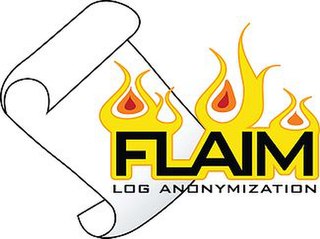 W
WAnonymous is a decentralized international activist/hacktivist collective/movement widely known for its various cyber attacks against several governments, government institutions and government agencies, corporations, and the Church of Scientology.
 W
WA black bloc is a tactic used by protesters who wear black clothing, ski masks, scarves, sunglasses, motorcycle helmets with padding, or other face-concealing and face-protecting items. The clothing is used to conceal wearers' identities and hinder criminal prosecution by making it difficult to distinguish between participants. It is also used to protect their faces and eyes from pepper spray, which is used by police during protests or civil unrest. The tactic allows the group to appear as one large unified mass. Black bloc participants are often associated with anarchism, anarcho-communism, communism, libertarian socialism or the anti-globalization movement.
 W
WUnder the Chatham House Rule, anyone who comes to a meeting is free to use information from the discussion, but is not allowed to reveal who made any particular comment. It is designed to increase openness of discussion. The rule is a system for holding debates and discussion panels on controversial topics, named after the headquarters of the UK Royal Institute of International Affairs, based in Chatham House, London, where the rule originated in June 1927.
 W
WCyberBerkut is a modern organized group of pro-Russian hacktivists. The group became locally known for a series of publicity stunts and distributed denial-of-service (DDoS) attacks on Ukrainian government, and western or Ukrainian corporate websites.
 W
WDemocratic Tsunami is a Catalan protest group advocating for a self-determination referendum in Catalonia, formed and organized in the lead up to the final judgement on the Trial of the Catalonia independence leaders. It organizes supporters of the Catalan independence movement through the use of social media, apps and other online resources. It used a 'bespoke' Android app, along with a Telegram account with over 410,000 followers in order to mobilize and organize demonstrations during the 2019 Catalan Protests. Distributed outside of the official market for Android apps, the application infringes the European legislation for data protection in regards of geolocalization.
 W
WFLAIM is a modular tool designed to allow computer and network log sharing through application of complex data sanitization policies.
 W
WKrinsky v. Doe 6, was a decision by the California Court of Appeal, Sixth District, addressing the evidentiary standard required of plaintiffs seeking the identification of anonymous Internet posters. The case addressed defamation and the right to anonymous speech on the Internet. Plaintiff Lisa Krinsky sued Doe 6, an anonymous poster to Yahoo! message boards, for defamation. Krinsky served a subpoena to Yahoo! for Doe 6's identity. Doe 6 filed a motion to quash the subpoena, "contending that he had a First Amendment right to speak anonymously on the Internet."
 W
WMinds is an alt-tech blockchain-based social network. Users can earn money or cryptocurrency for using Minds, and tokens can be used to boost their posts or crowdfund other users. Minds has been described as more privacy-focused than mainstream social media networks. Writers in The New York Times, Engadget, and Vice have noted the volume of far-right users and content on the platform. Minds describes itself as focused on free speech, and minimally moderates the content on its platform. Its founders have said that they do not remove extremist content from the site out of a desire to deradicalize those who post it through civil discourse.
 W
WPostSecret is an ongoing community mail art project, created by Frank Warren in 2005, in which people mail their secrets anonymously on a homemade postcard. Selected secrets are then posted on the PostSecret website, or used for PostSecret's books or museum exhibits.
 W
WThe talking statues of Rome or the Congregation of Wits provided an outlet for a form of anonymous political expression in Rome. Criticisms in the form of poems or witticisms were posted on well-known statues in Rome, as an early instance of bulletin board. It began in the 16th century and continues to the present day.
 W
WAn unmarked grave is one that lacks a marker, headstone, or nameplate indicating that a body is buried there. However, in cultures that mark burial sites, the phrase unmarked grave has taken on a metaphorical meaning.